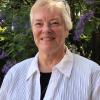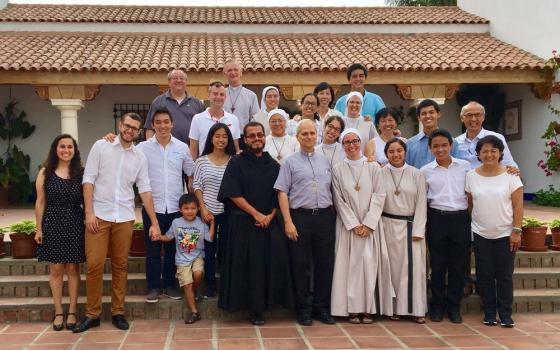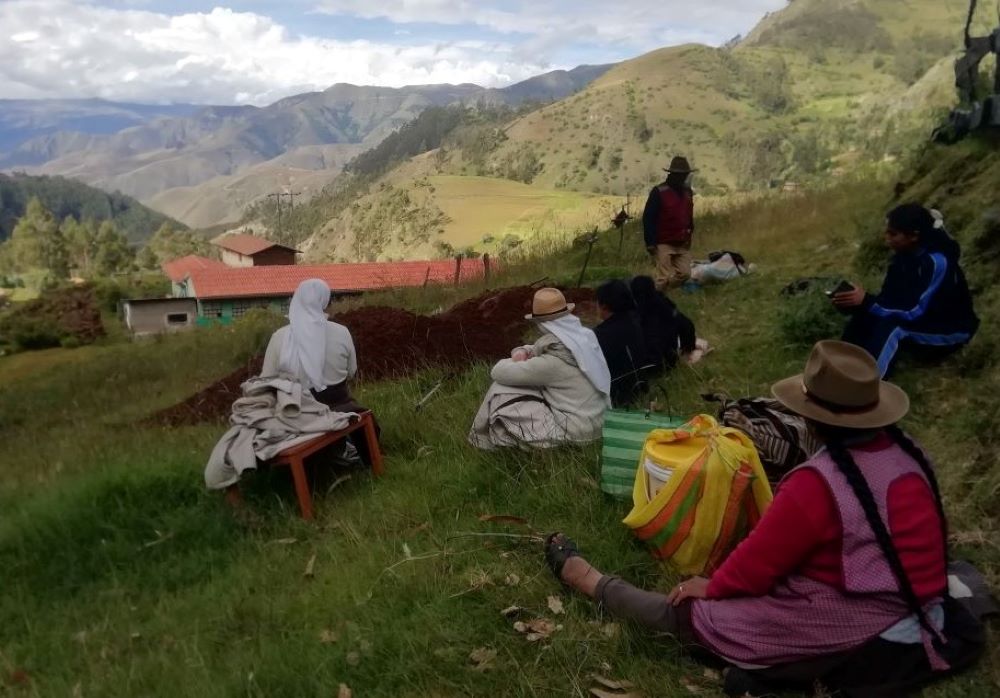
Farmers and residents of the village of Cotacombas, Peru, share a lunch of chicken stew in the countryside. Augustinian Sisters of the Conversion Monastery spent 10 days with the community in the Andes. (Courtesy of Diana Villarreal)
The women of the Peruvian Andes drive two wooden stakes into the ground. With them they build a frame on which they weave a loom. Once finished, they pull the stakes out of the ground and, with sacred respect, fill the hole left in the ground by the stakes with a few coca leaves. This is the way they restore what was taken away and heal the small wound that Pachamama has suffered because of the work of human beings.
The inhabitants of the Andean mountains know that the earth nourishes and protects the people, feeds them, shelters them from the cold and the sun, fills the soil with fruits and animals of all species, and sustains them with life. Pachamama is a vehicle of Divine Providence, a concrete gift of the love of God the Father who cares for and loves His children. They, in turn, strive to return a small part of the gifts with which she blesses them, thus establishing a reciprocal relationship that must always maintain a fair balance.
On the other hand, if they are unjust, if they do not thank Mother Earth for her care, if they damage her surface with aggressive farming methods, or if they do not make their annual offering in exchange for so many gifts received, then the flow of goodness that comes to them through her could be truncated and fail. The land is moaning, groaning, claiming its sacred status, and already showing itself to be ailing in many places, incapable of providing people with the gifts they need to live.
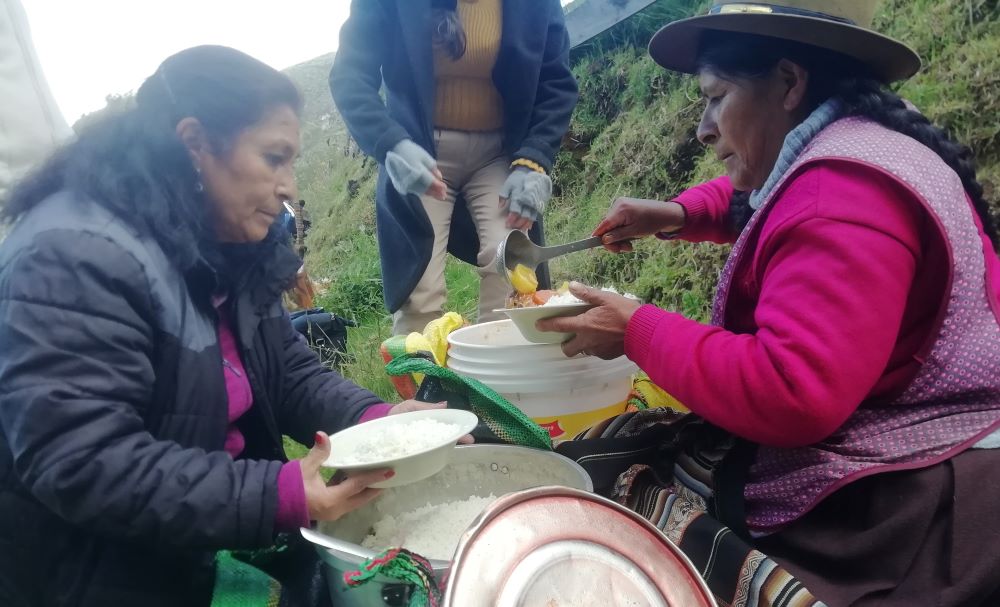
Farmers and locals from the village of Cotacombas share lunch in the field before their pilgrimage to the ecological sanctuary of Ccoñamuro, dedicated to the Virgin, Queen of Peace. (Courtesy of Diana Villarreal)
In the Andes, at an altitude of more than 3,500 meters (2.17 miles), it is vital to be there for each other, for life is not easy. Weather conditions are harsh and unpredictable. Every day is a battle against the elements: the cold, the biting and freezing wind, the scorching sun, the steep slopes that demand continuous physical effort, the atmospheric pressure that oppresses the lungs, the torrential rains in the wet months, and the drought the rest of the year. The only way to achieve a good and truly human life in this context, far from the cities that have more resources, is the support and protection of the community.
We, the Augustinian Sisters of the Conversion Monastery, have witnessed the lifestyle of the Quechua people during the days we spent among them in a small town in the region of Apurimac called Cotabambas. We have been able to touch, in only 10 days, that native goodness that flows from their ancestral culture and is rooted in the depths of their souls. We have seen it in the faces of the children and young people who attended our workshops every afternoon, and in the daily encounters with the neighbors of that town who, with their affable gestures, welcomed us.
Our mission there was simple: to deepen, through play, dialogue and prayer, the importance of Christian community and the fruits of peace and unity that grow in it. Mary was the model who guided the journey because, at the end of the week, there was a pilgrimage to the ecological sanctuary of Ccoñamuro, dedicated to the Virgin, Queen of Peace. Our workshops were designed to prepare the people to participate in the pilgrimage, and to rekindle in them the desire to live as a Christian community. There, the logic of reciprocity, so natural to the Quechua culture, finds its highest expression in being touched by the love of Christ.
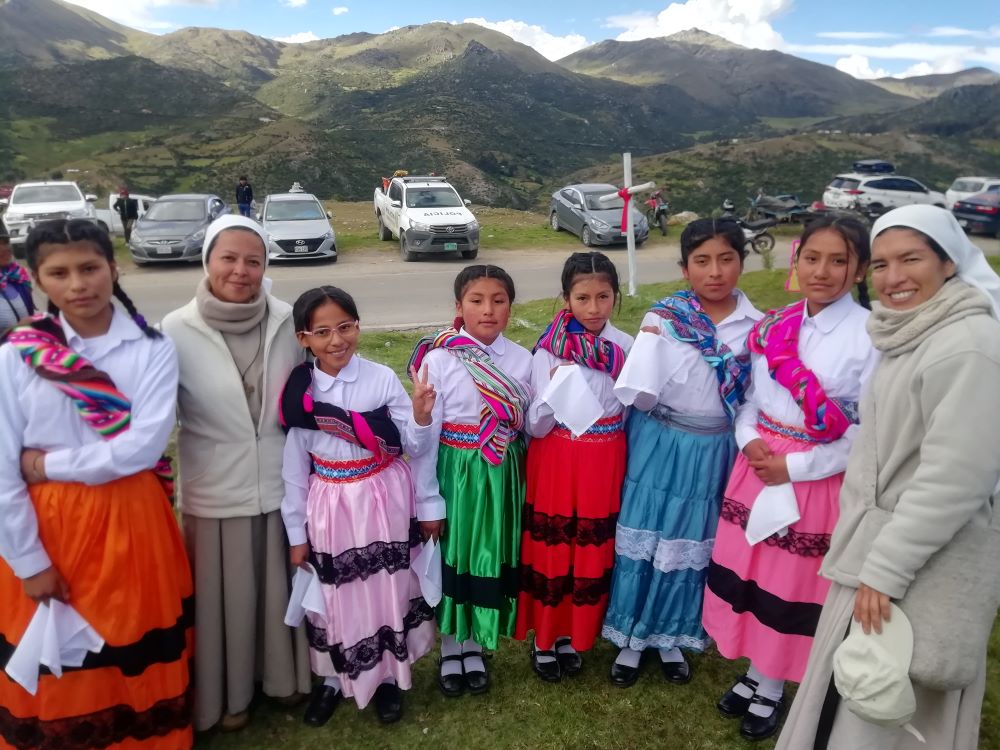
Girls from the St. Rita's School, run by the Sisters of Divine Love, visit the shrine of Mary, Queen of Peace in Ccoñamuro, Peru. (Courtesy of Diana Villarreal)
For them, accustomed to assuming responsibility for the life of their neighbor, Christian community is a response to this natural intuition which, although essential to their culture, also reveals signs of an enormous fragility. We encountered scattered and broken families, children with absent fathers, mothers without husbands, and old people without family. The Quechua spirit is frequently overcome by the inevitability of human weakness, and the way they would like to live becomes impossible.
The Pachamama bestowed on the Quechua people valuable resources, and a unique spirituality that makes them inhabit the world as a temple where they find God. These blessings have made them rich in human values and seasoned in the effort of hard work. These people have given us so much life in the last 10 days, but they have also infected us with the sadness of their wounds.
Advertisement
Thanks to God and the goodness of many, there is no lack of hands to help those who suffer most; and together with every suffering, we have discovered a healing balm. Elderly people without family are welcomed in a beautiful "village," built and managed by the Augustinian friars, where various people care for them and provide them with a life of dignity and beauty. More than 200 children have access to quality education in St. Rita's School, run by the Suore Agostiniane del Divino Amore. There, the sisters direct a boarding school for 50 girls who otherwise would have no opportunity to study and, therefore, overcome the limits of poverty and, so often, of marginalization.
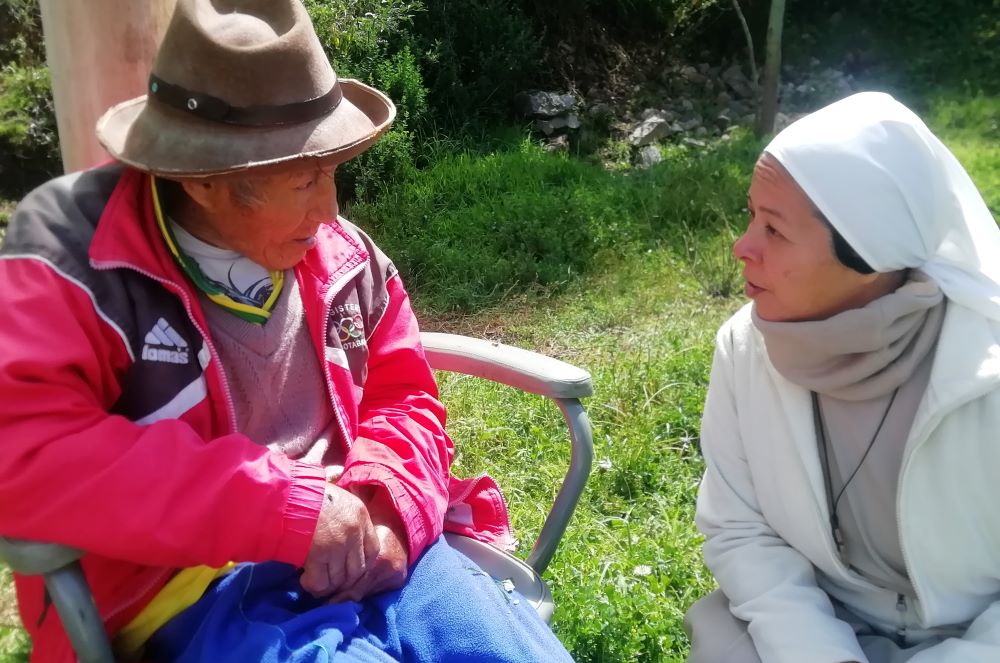
One of the elders taken in by the Agustinian brothers in the village of Cotambambas, Peru, talks with Sr. Laura Palomino Carreño. (Courtesy of Diana Villarreal)
Nuns or priests are not the only ones who take care of this town. The neighbors of Cotabambas have also demonstrated to us, with their actions, the meaning of Quechua reciprocity, matured in the heat of faith. They bravely protect Mother Earth and cultivate her with great effort, hoping that she will continue to bear the fruits necessary to continue living in her and from her. They restart life a thousand times after each blow, with the hope that, while there is life, it will be possible to go on. They share food and shelter, care for those who have been abandoned, struggle to obtain better social resources, and seek God and pray to Him because they place their trust in his Fatherly hands. Love is made concrete in their generosity toward one another, in whom the best of humanity is revealed.
They who, in the beginning, were the recipients of our evangelizing activities, have evangelized us with their lives, because in them we have found true seeds of the Gospel. Their simple companionship has left in us the desire to remain at their side and walk together toward the new Kingdom that is emerging little by little. Solidarity makes us all equal, brothers and sisters, children of the same Father and inhabitants of the same common home.

